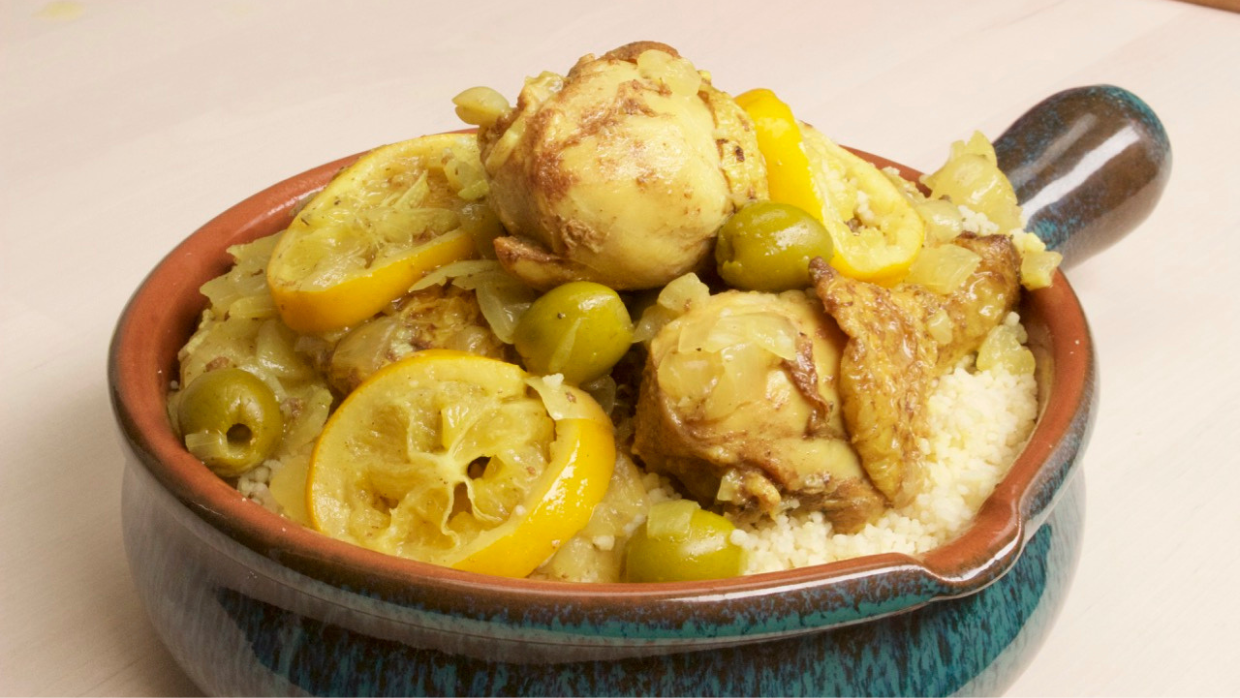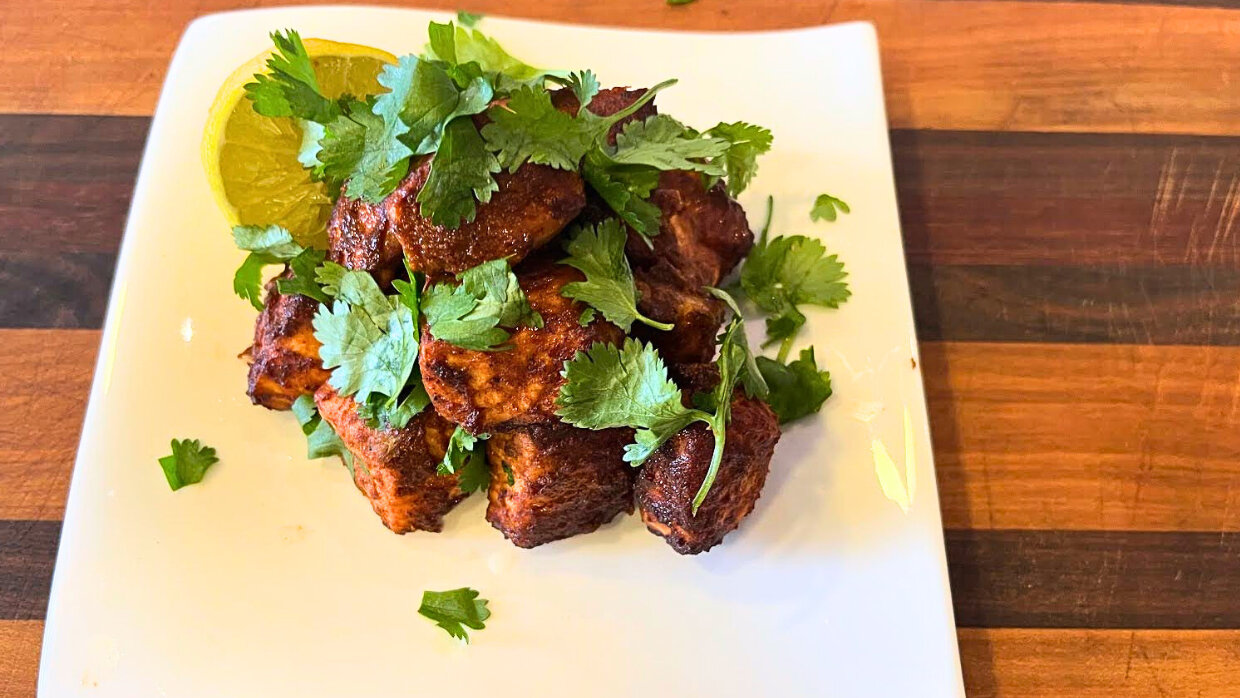Eating food isn’t just about the taste on your palate. Nor is it just the colors and smells, or even the people you are sitting with enjoying your meal. It’s also about you.
Growing up, I recall weekday dinners, which we always ate together as a family, 6 pm sharp. We sat at a table with the television blaring next to us. Sometimes, my father would mute the TV if he had something important to say. Otherwise, it was a cacophony of sounds from us trying to talk over the volume level of the nightly news.
For most families, things aren't much better. As each family member sits at the table, they have a phone in one hand and a fork in the other. The phone is sometimes lowered to the table for slicing food on the plate but is quickly lifted, so the mouthful of food is enjoyed only while staring at the screen.
Studies tell us that eating food while distracted results in much more food being consumed than if we weren’t involved in another simultaneous activity. That makes sense. If you’re focused on your phone or reading an article during your meal, how can you track whether you’re eating a second plateful, third, or even fourth.
The term “mindfulness” was defined by Jon Kabat-Zinn as “paying attention in a particular way, on purpose, in the present moment, and nonjudgmentally.” Mindful eating is doing the same, paying attention to your state of mind while you’re sitting and eating, and being present, in a non-judgmental way.
Maimonides teaches us in the Laws of Conduct 3:2 that a person should have the intent in all their actions that their body be whole and strong. This is in order, he says, for your inner soul to be upright so that it will be able to know God. It’s impossible, he says, to understand and become knowledgeable of God when you are starving or sick, or when one of your limbs pains you.
He goes on to specifically discuss the importance of a sound mind and body. Physical and mental health are seen as two halves of a whole and cannot be divorced one from the other. Building a spiritual relationship with God involves taking care of body and soul: “Since maintaining a healthy and sound body is among the ways of God - for one cannot understand or have any knowledge of the Creator, if he is ill - therefore, he must avoid that which harms the body and accustom himself to that which is healthful and helps the body become stronger.”
So eating is more than just about survival, and much more than just the pleasure the food and drink gives you as it lands on your tongue or enters your stomach. Food has the ability to connect you to God, the people you are eating with, and of course, yourself.
We all have the ability to eat in a mindful manner. Shabbat dinner is a meal which permits us to not only be aware of those eating with us, but also to ourselves, our own minds and being.
Traditional Jews, before we sit and eat, we begin with washing our hands. This washing prepares us to break bread together. It’s not a cleanliness washing. That should be done before this. We fill a cup and pour water twice or three times onto each hand. This was the procedure done in the Temple in Jerusalem before the services.
The blessing we make after the washing is “Blessed are you God, Master of the universe, who sanctified us with mitzvot, and commanded us with the lifting up our hands.” What an unusual blessing. Why doesn’t the blessing talk about washing our hands, why lifting them up? The answer is because we are about to eat, and the hands are the tools we are going to use to break bread and eat the food. The lifting up of the hands before the meal begins is how we become aware of the spiritual nature of the meal. Before any food passes our lips we are already becoming mindful of the food we are about to ingest.
One of the laws connected to blessing the bread, is to not speak between the washing and the bread eating. These few moments are sometimes seen as an irritating inconvenience, holding us back from eating the delicious challah until all the members of the meal have taken a seat. However, these moments of silence can have an incredible power when it comes to mindful eating.
We sit in total silence, and are left to focus on our inner thoughts and purpose, which will become part of the meal we are about to eat. For many people, these moments are incredibly uncomfortable as they can’t fill the quiet with noise, chit-chat, or other distractions. Instead they are left to sit on their own digesting the moments of silence that surround them.
Not speaking between washing for bread and eating the bread is a requirement for every meal where bread is eaten. If we are eating alone or with others. Mindfulness in eating takes the meal and elevates it, and us, to a higher place.
So eating doesn’t become an animalistic act. You can’t just jump into it like a dog or any other animal. Animals eat to survive, and therefore eating remains an important but base act. For us humans who have been endowed with a Godly soul, the food sustains our bodies but also our spirits. And so we wash the hands, we lift the hands, we make blessings, we have moments of silence.
To eat mindfully, we need moments to prepare. Not too long, because we are still hungry and want the eating to begin, but enough time to have a moment or two of contemplation. What are you going to do with the energy you are about to receive from eating this meal? Are there people out there who aren’t fortunate enough to be eating healthy food, or any food? Am I living to eat or eating to live?
There are many more questions you can implant into your mind when you begin a meal. Sometimes you will, and sometimes you’ll forget it all and just bite into that juicy burger. But either way, a basis of mindful eating has been offered to you and you can choose to take it.
Being mindful when eating can alter the way we relate to food, our minds and our bodies. It takes a moment of contemplation before or maybe while we are eating and can change the entire mind and body dynamic.

















